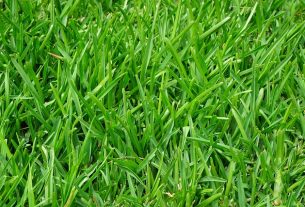Lawn care and landscaping are undergoing a transformation through sustainable practices that prioritize environmental health, biodiversity, and water conservation. Homeowners are increasingly adopting eco-friendly methods such as organic fertilizers, smart irrigation systems, and xeriscaping with native plants to minimize resource use while maintaining vibrant lawns. Advanced planning tools like 3D modeling software enable precise visualization of outdoor designs before construction, ensuring satisfaction with the results. The integration of smart technologies, including automated lighting and climate-suitable vegetation, enhances both aesthetics and functionality, creating a symbiotic relationship with the natural environment. These practices not only beautify outdoor spaces but also represent a commitment to responsible resource management within modern lawn care and landscaping. Additionally, the use of smart technology in watering systems, sensors for environmental monitoring, robotic mowers, and gardening apps have made lawn maintenance more efficient, less labor-intensive, and environmentally friendly, aligning with ecological principles and promoting sustainable living practices. These innovations are a testament to the evolving role of lawn care and landscaping in environmental stewardship and community education, emphasizing the importance of integrating green spaces into modern lifestyles.
Homeowners are reimagining their outdoor spaces, blending traditional lawn care with modern landscaping to create verdant, sustainable havens. This article explores the evolution of residential outdoor areas, highlighting innovative techniques that revolutionize maintenance and design. From eco-conscious gardening practices to the integration of smart technology for seamless lawn upkeep, discover how to elevate your garden’s appeal while honoring the environment. Lawn Care and Landscaping play pivotal roles in this transformation, offering a blend of practicality and beauty that is both timeless and contemporary.
- Revolutionizing Residential Outdoor Spaces through Innovative Lawn Care and Landscaping Techniques
- The Transformative Power of Eco-Friendly Gardening Practices in Modern Landscapes
- Integrating Smart Technology for Sustainable and Effortless Lawn Maintenance
Revolutionizing Residential Outdoor Spaces through Innovative Lawn Care and Landscaping Techniques

The transformation of residential outdoor spaces has undergone a significant shift with the advent of innovative lawn care and landscaping techniques. Homeowners are now embracing sustainable practices that not only enhance the aesthetic appeal of their properties but also promote environmental health. Advanced lawn care solutions, such as smart irrigation systems and organic fertilizers, have become prevalent. These systems ensure optimal water usage while enriching soil quality, leading to lusher, more resilient turf. The integration of xeriscaping principles, which emphasize drought-resistant plants and native vegetation, further complements these efforts by reducing the need for supplemental watering.
In parallel with eco-friendly lawn care, landscaping has also seen a leap into the future with the use of cutting-edge technologies. Homeowners are leveraging 3D modeling software to design their outdoor spaces before any physical work begins. This foresight allows for precise planning and the ability to visualize outcomes, ensuring satisfaction with the final landscape design. Additionally, the integration of smart technology, such as automated lighting and climate-adaptive plants, has become more commonplace. These features not only contribute to the beauty and functionality of outdoor spaces but also help homeowners create a harmonious balance between their living environment and the surrounding ecosystem.
The Transformative Power of Eco-Friendly Gardening Practices in Modern Landscapes

The integration of eco-friendly gardening practices into modern landscapes has proven to be a transformative endeavor, offering myriad benefits beyond the mere aesthetic enhancement of residential outdoor spaces. These sustainable approaches not only foster biodiversity but also contribute to the health of local ecosystems. By adopting organic lawn care and landscaping techniques, homeowners can significantly reduce their environmental footprint, minimizing the use of synthetic fertilizers and pesticides that can harm beneficial insects and pollinators. The adoption of xeriscaping, for instance, not only conserves water but also creates a landscape that supports native plant species, which are well-adapted to local conditions and require less maintenance. Composting organic waste enriches the soil naturally, promoting soil health and reducing landfill contributions. Furthermore, the incorporation of rain gardens and permeable surfaces enhances groundwater recharge and mitigates stormwater runoff, which often carries pollutants into water bodies. These practices underscore a shift in mindset from consumption-driven landscaping to one that prioritizes conservation and harmony with nature. As a result, lawn care and landscaping have evolved into a powerful tool for environmental stewardship and education, inspiring communities to embrace sustainable outdoor spaces as a cornerstone of modern living.
Integrating Smart Technology for Sustainable and Effortless Lawn Maintenance

In recent years, the integration of smart technology into residential outdoor spaces has revolutionized lawn care and landscaping, offering homeowners a blend of sustainability and ease. These advanced systems automatically adjust irrigation schedules based on soil moisture levels, weather forecasts, and local watering restrictions, ensuring optimal hydration without waste. Sensors monitor sunlight, temperature, and rainfall to tailor maintenance tasks to the precise needs of the lawn, reducing the environmental impact and minimizing the effort required by homeowners. The use of robot mowers, another innovation in this space, allows for precise, consistent cuts that promote a healthier, more robust lawn while conserving energy and time. These robotic mowers operate on schedules programmed by the user, creating an impeccably maintained landscape with minimal intervention. With the integration of smart technology, homeowners can enjoy a lush, vibrant outdoor space that is both beautiful and environmentally conscious, all without the traditional labor-intensive lawn care routines.
Furthermore, the advent of smart gardening apps complements these systems by providing users with detailed insights into their lawn’s health, offering recommendations for fertilization, pest control, and seasonal adjustments. These apps can be connected to the IoT-enabled devices, creating a comprehensive ecosystem that simplifies the process of maintaining a healthy landscape. The data collected from these smart systems can guide homeowners in making informed decisions about their lawn care and landscaping practices, leading to greener spaces and a reduced carbon footprint. As a result, integrating smart technology into residential outdoor spaces is not just a trend but a forward-thinking approach to sustainable living that aligns with the growing awareness of environmental stewardship.
In conclusion, the transformation of residential outdoor spaces is a testament to human ingenuity and our growing commitment to sustainability. Through innovative lawn care and landscaping techniques, eco-friendly gardening practices, and the integration of smart technology, homeowners can now enjoy lush, vibrant yards with minimal effort and environmental impact. These advancements not only enhance the aesthetic appeal of homes but also contribute to a greener planet. As we continue to refine these practices, it’s clear that our outdoor spaces will remain at the forefront of design and environmental stewardship. Lawn Care and Landscaping have evolved beyond traditional methods, setting a new standard for future generations to build upon in the pursuit of harmonious living with nature.



